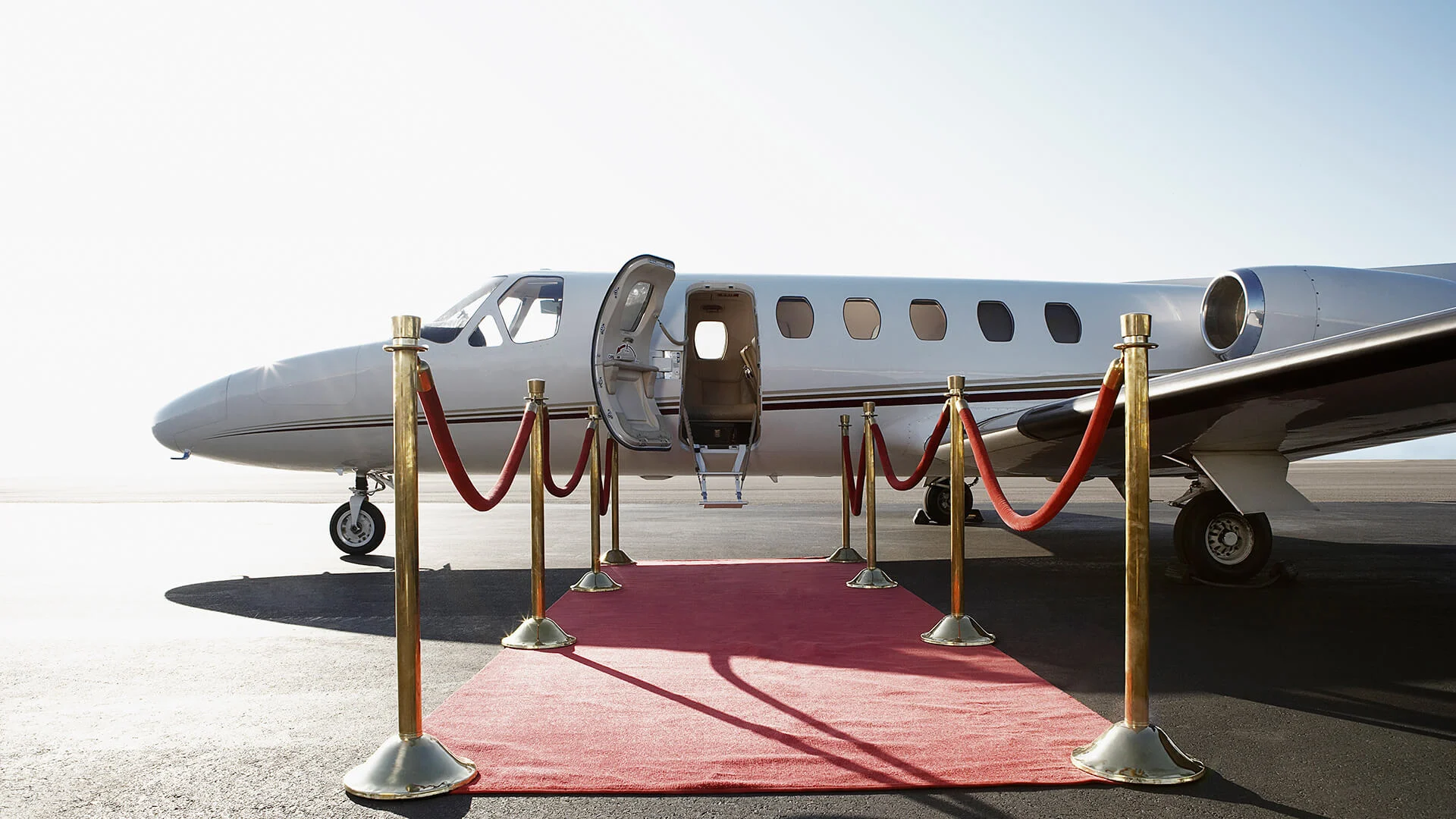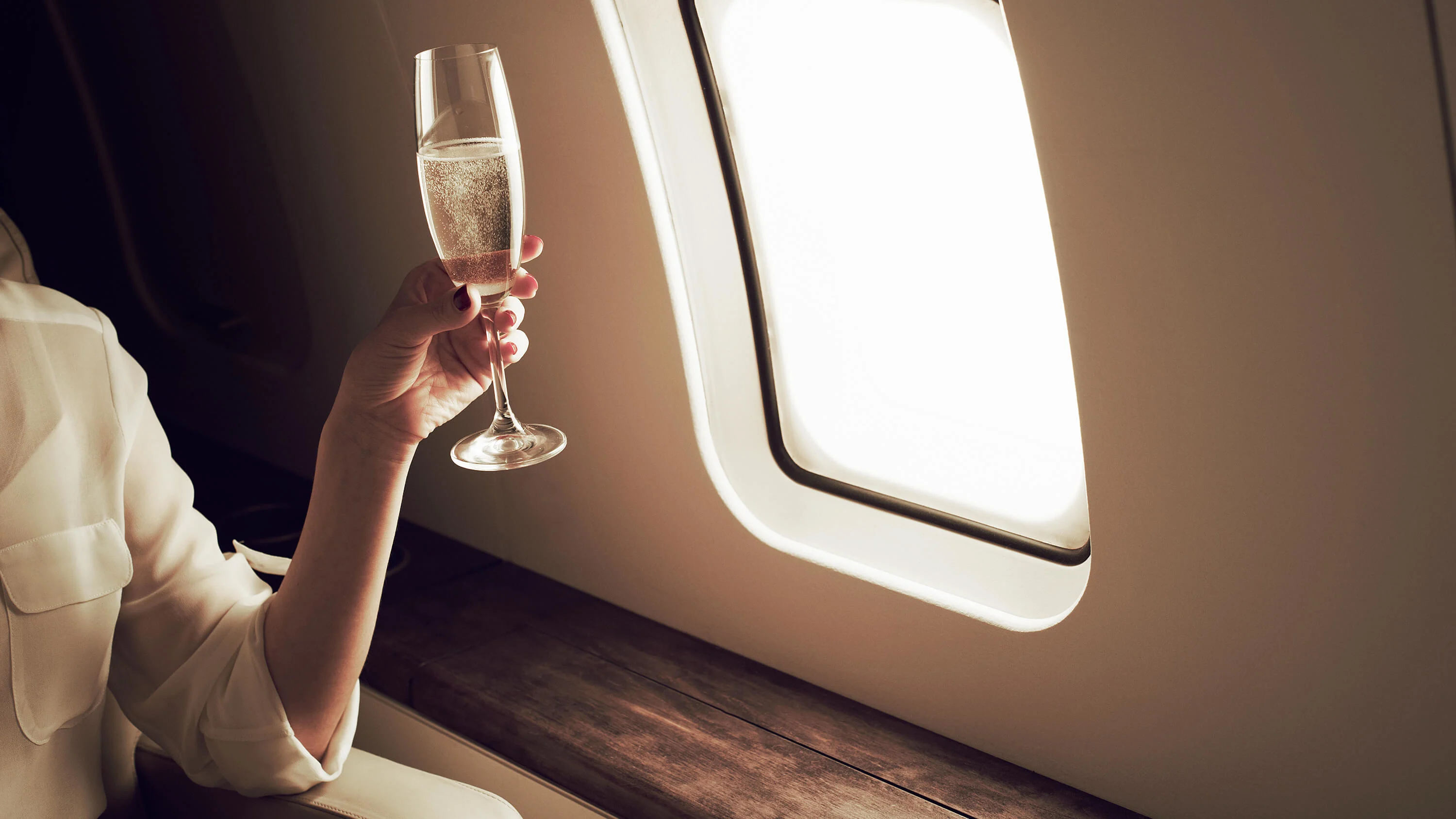
Flight shaming celebrity jet-setting probably won’t work. Here’s what can
From Drake to Trudeau, Canadians haven’t been spared in recent criticisms. But one expert says criticizing might not actually be the way to go.
Welcome to the summer of private jet shaming.
Drake, Kylie Jenner, Taylor Swift: these are just some of the names being dragged through the social media mud after news broke earlier this summer of celebrities who take short flights and create big emissions.
That’s, in part, thanks to tracking from @CelebJets on Twitter.
“I think it's good to just show people data that they didn't know existed or give them access to it,” said Jack Sweeney, the University of Central Florida student behind the automated bot account.
“I have the data of airplanes that are flying in the sky and I've identified the ones that are celebrities. And if they take off or land, my program will tweet whose plane takes off and lands, where, and how long the flight is.”
His tweets show that planes belonging to big stars have been taking flights under 20 minutes, like reality TV personality Kylie Jenner who was subsequently labelled a “climate criminal.”
The 19-year-old first skyrocketed from relative obscurity to notoriety when Tesla billionaire Elon Musk reportedly offered to pay him to delete the Twitter account that tracked his private jet. The teen countered with a higher number, or access to a Tesla, but the deal never went through.
“And then I had the idea to start doing more. And you know, it's a hard process to set up like all the Twitter accounts because you got to like sign up,” said Sweeney. “So I figured I would just combine them or put them on one account. And as I got requests I'd look for the planes, or I already had some. So I just put a lot of celebrities on that account.”
Today @CelebJets tracks 370 planes.
It all started in October 2021, then Sweeney added carbon emissions to his tweets this spring.
“I thought it was something cool,” he said. “And then it also gives more visibility about the climate and how much of an impact each flight is.”
And then the reactions started pouring in.
And it’s not just for celebrities, but politicians too.
Sweeney’s bot also tracks Prime Minister Justin Trudeau, who’s no stranger to being roasted for his plane emissions while his government continues to hike the carbon tax and implement a climate action plan.
But the bot can't confirm whether those who own the planes were on the flight, as it’s just pulling information from the ADS-B Exchange — which claims to have the world’s largest source of unfiltered flight data. So the plane could be going in for maintenance or carrying someone else.
That was the response Canadian hip-hop star Drake used after being called out for a 18-minute flight from Hamilton, Ont., to Toronto on his massive Boeing 767 gifted to him from a Canadian cargo airline.
“This is just them moving planes to whatever airport they are being stored at for anyone who was interested in the logistics,” he wrote on an Instagram post by RealTorontoNewz. “Nobody takes that flight.”
The sentiment didn’t seem to help his case, with many saying that made things worse.
Singer Taylor Swift was among the short list of stars who also sent her rep into the public realm to set the record straight, claiming others rent her plane — which is why it ranked among the highest emissions.
How to move beyond shaming
But while celebs have defended the use of their private jets, they are not clamouring to stop taking them.
“If all of us had the same resources, we might make some of those similar choices and shaming can backfire,” said Suzanne Kearns, an associate professor of aviation at the University of Waterloo and director of the Waterloo Institute for Sustainable Aeronautics (WISA).
“When in reality, I think there's an opportunity that if we empower people who have a platform to work alongside us and be leaders in sustainability issues, then maybe we could achieve a better future.”
She added that tracking straight up carbon emissions and flights doesn’t factor in the work these celebs may be doing to help the environment.
Buying sustainable fuels, carbon offsets
For example, sustainable aviation fuels. They can reduce emissions by up to 50 per cent. But they also can be three times as expensive as traditional aviation fuels.
“If I was a celebrity … and I paid three times as much because I wanted sustainable fuels, and I invested in offsets …, no one would know, right?” Kearns said. “So why would I be empowered to invest extra into aligning with my ethical and moral viewpoint if I was just getting shamed regardless of that point.”
Drake, for example, tweeted in July 2021 that he partnered with Aspiration and encouraged others to offset their carbon footprint.
So how bad is the problem?
It’s been widely reported that plane emissions are responsible for less than three per cent of global emissions. Transport & Environment, a clean transport campaign group, claims just one per cent of people cause 50 per cent of those global aviation emissions.
According to the Guardian, taking one return long-haul flight on a regular airline generates more CO2 than citizens of some countries produce in a year.
And private jets are so much worse because they don’t have many passengers per flight.
Supporting the future of flying technology
But the future, as they say, could be a lot more friendly.
“There's a lot going on in the industry to really prioritize sustainability. We've seen sort of this shifting post pandemic where aviation internationally has put sustainability as one of the top priorities. But the challenge is that it's a hard sector to reduce emissions from,” said Kearns.
“So some of the strategies that are in place now are carbon neutral growth from 2020 onwards. So basically right before 2020 they tracked the emissions that were produced and set the target to never exceed those emissions by implementing things like more direct flights, new aircraft technologies — like in the future, electric and hydrogen powered aircraft, sustainable fuels and offsetting.”
Watch below: Can a vacation to the North Pole be luxurious and sustainable?
But gains are often displaced by the projected growth in the industry, as more planes are expected to take to the skies in the coming years.
“A lot of the people who use business aviation are the kind of like cash rich but time poor, right?” said Kearns. “Like they are business people, they're contributing to our GDP, they're having a lot of productive impacts on society. And so vilifying the sector is challenging, because we want to work with that sector.”
And after two years of dealing with COVID-19, and trying to avoid long airport lines and ever-changing regulations, it’s also been reported that private air travel took off in the pandemic.
That may change when Canada implements its Select Luxury Items Tax Act this September. The new tax will be added onto the sale and importation of high-value cars, planes, and boats.
Some have connected the new tax with hopes of curbing climate emissions, but the Government of Canada’s finance department says that wasn’t the intention.
“The government was re-elected on a platform that included a commitment to bring forward a luxury tax on yachts, private jets, and luxury cars and implementing this measure is a priority,” Adrienne Vaupshas, press secretary for the office of the deputy prime minister and minister of finance, said in a statement provided to The Weather Network.
“Fighting COVID-19 required an extraordinary effort on the part of all Canadians, and an extraordinary amount of public funds to provide free vaccines and income support so we could bounce back quickly. It is only right and fair that the very wealthiest are asked to pay their fair share.”
Now whether it will actually cause any changes to how many private jets being put into service is still to be seen.
But could it have the opposite effect of getting gas guzzlers out of the sky? It's not uncommon for an aircraft to be around for 20 or 30 years, so it might be tougher to invest in new, more sustainable technology when a more traditional jet can still take flight.
“I think, as a society, we need to be focused on innovations and practices, which can effectively eliminate emissions from aviation. And if we get too focused on shaming and pointing the finger at people, I don't know that we're really focusing on activities that can make it better,” said Kearns.
“I think it's important as a society that we hold each other accountable authentically. But I think it becomes problematic when holding each other accountable has come to mean publicly punishing and shaming each other, which I question if that's truly effective, and inspiring people to adopt more sustainable practices.”
There are solutions, she says. Some that can even be implemented immediately.

Imagine if those short flights are using electric aircraft in the near future? (Flashpop/ Stone collection / Getty Images)
For example, air traffic management. Planes don’t always fly in a straight line, and that creates more emissions.
“Or if they do, and they get a perfectly sort of straight line flight, they might get to an airport and be put into a holding pattern and have to wait in order to land and therefore lose all of those gains,” said Kearns.
And in the future, can the super-rich help supercharge zero-emission aviation? It’s technology Kearns expects to see become more commonplace in the next two decades.
“What I think are some of the most exciting technologies are new propulsion technologies. So electric aircraft, which are in use today though, because of battery density, only for very short flights — typically with small aircraft. But we can imagine a future where battery technology improves and we could have larger scale electric planes, in addition to hydrogen propulsion, which unlocks all sorts of new possibilities.”
But the question is will they if it just continues to bring them bad press.
“I find that if you can get people sort of like rolling the ball up the hill, the more people you have pushing with you to get that ball up the hill, the more likely it is that you'll achieve some of those goals,” said Kearns.
Thumbnail image: Private jets often roll out the red carpet for celebrities. (Jupiterimages/ The Image Bank/ Getty Images)












